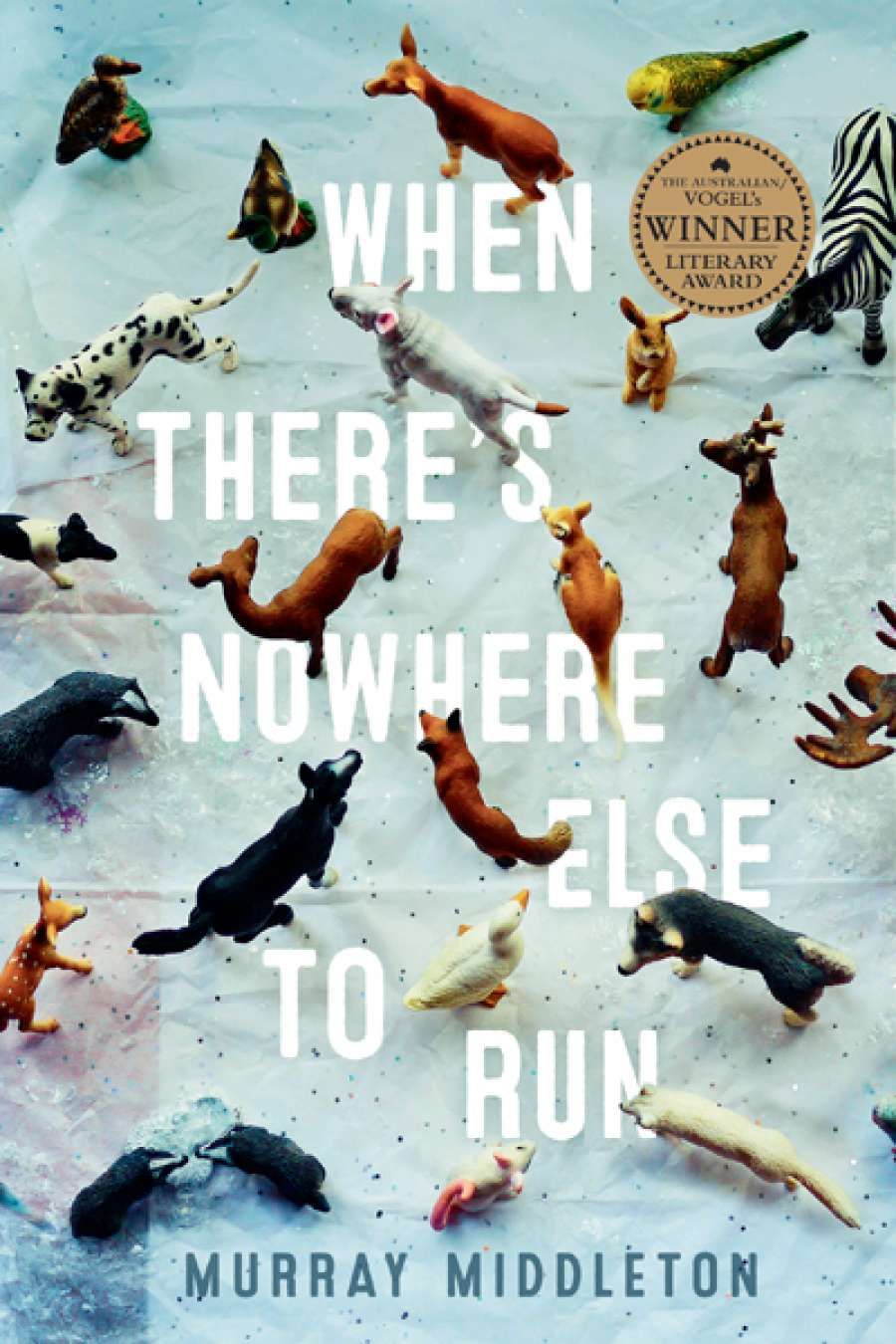
- Free Article: No
- Contents Category: Fiction
- Custom Article Title: Laurie Steed reviews 'When There's Nowhere Else to Run' by Murray Middleton
- Book 1 Title: When There's Nowhere Else to Run
- Book 1 Biblio: Allen & Unwin, $27.99 pb, 243 pp, 9781760112332
As far as departures go, Middleton’s début collection is a pleasurable, if not ground-breaking, one. The landscapes are familiar, the character arcs very recognisable to anyone with even a passing interest in Australian literature. More enticing, perhaps, is Middleton’s spare, almost clinical prose in what is, for the most part, a cleverly and coherently linked meditation on a theme.
The characters are typical of contemporary Australian literature,though somewhat younger in both age and emotional maturity. Part Winton, part Cate Kennedy, Middleton is similarly assured in voice and tone. If this assurance can read like a court report, this is because he clearly wants it that way. It is an intentional choice to eschew the dramatic and instead favour a gentle tectonic shift of character.
Thematically, When There’s Nowhere Else to Run stays true to its title. To Middleton’s credit, each story is interesting, each journey suitably varied. Read as a whole, it is clear why this particular collection appealed to the judges, such is its cohesion as a work of literary fiction. Aside from the near epistolary style of ‘Burnt Hill Farm’, these are stories unwaveringly focused on a moment of loss, impending or in the past.
At their best, such stories showcase a naturalistic, understated exploration of faith, loss, and legacy in present-day society. It is no surprise that ‘The Fields of Early Sorrow’ won the 2010 Age Short Story Award. It evokes the potentially tragic ties of family. ‘Hinterland’ and ‘Big Buffalo’ are similarly exquisite. The title story is something entirely different, a gentle waltz through a friend’s death, told with courageous vulnerability.
 Murray Middleton (photograph by Leigh Young)
Murray Middleton (photograph by Leigh Young)
Others seem structurally sound, though not as emotionally accessible to the reader. ‘Forget about the Prices’ follows an unnamed son and Crazy Clark’s worker as he meets his mother for dinner, but ends with Australia’s lack of tolerance for those outside of the dominant ideology. Both ‘Mainstream’ and ‘The Greatest Showbag on Earth’ tackle parenting. The former charts a mother’s visit to Perth with her autistic son to see his father; the latter finds a man near the end of his tether while looking after his children at the Sydney Royal Easter Show. Here, one feels slight detachment; while the stakes for the characters are undoubtedly high, the language is stripped back. This is an approach that takes some getting used to. By collection’s end, it is also empowering for the reader, allowing for quiet contemplation of the themes and thoughts behind each story, between similarly stark but never repetitive tales of loss and redemption.
‘At their best, such stories showcase a naturalistic, understated exploration of faith, loss, and legacy in present-day society’
This style of literary reportage leaves little scope for experimentation, and even a cursory read of this work would confirm When There’s Nowhere Else to Run as unabashed realism. It is unlikely, however, that this preoccupation will come to define Middleton. Upon receiving the Vogel Award, Middleton was quick to express a desire to ‘work on pushing myself, using new techniques, trying to master them. I want to bring something new to the table.’
Such willingness to stretch the form is admirable. One might almost predict it from the stories already published. Not many current writers are willing to be as vulnerable, or brave, as Middleton, at his most daring.
When There’s Nowhere Else to Run is, in many ways, the work of an author who has already grasped the conventions of literary realism. In this respect, he has taken his rightful place alongside Kennedy, Mears, Winton, van Loon, and any number of other dynamic realists who have won Australia’s premier award for younger writers. These authors are established masters of the form. I would wager that Middleton has yet to define his oeuvre. Where he will next venture is open to conjecture.


Comments powered by CComment